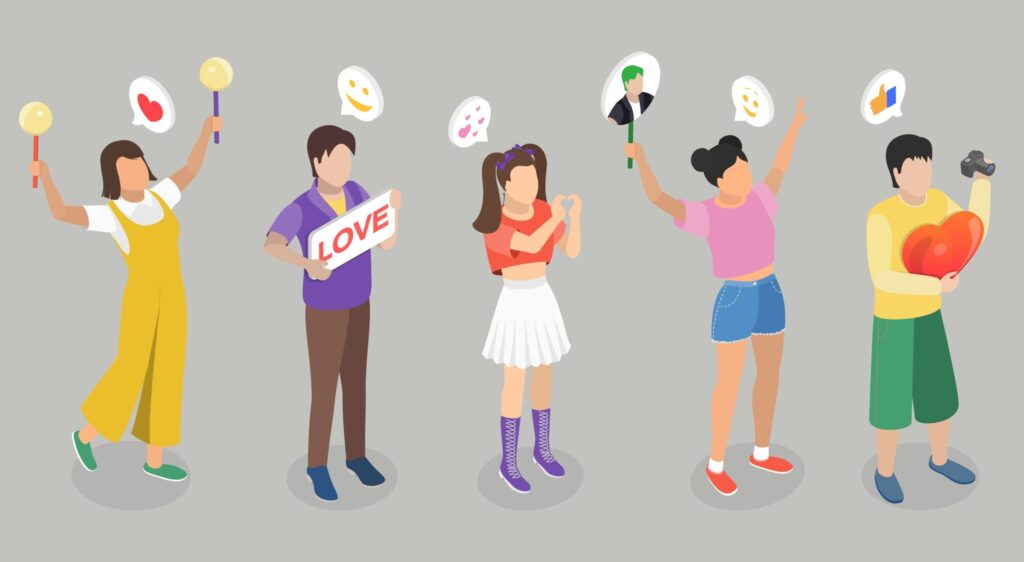Oshikatsu (Idol-Support Activities):
The Pros and Cons of Japan’s Organized Fandom Culture

In Japan, some fans take supporting their favorite idols very seriously. This hobby, called oshikatsu, involves many activities that help idols succeed and connect fans with each other.
How Oshikatsu Works
In the West, many grandparents probably remember the 1960s and 1970s, when they had pictures or posters of bands like The Beatles or The Rolling Stones on their bedroom walls. They might have collected albums. They might have kept special souvenirs or gone to concerts with friends. This type of fandom was often casual. Their love for a singer or band was private or shared with only a few friends.
Oshikatsu is different. This Japanese slang term comes from two words: oshi (a favorite celebrity, idol, or character) and katsudo, which means “activity” in Japanese. Oshikatsu refers to the many things fans do to support, promote, and connect with their oshi. Fans can attend concerts or events, buy official merchandise, join special campaigns, or talk with other fans in online communities or at meet-ups.
The purpose of oshikatsu is not just personal enjoyment. Fans try to make a real difference for their oshi. They do this by boosting the idol’s popularity, helping them win awards or rankings, or increasing sales of their goods and albums.
Why Japanese Fans Enjoy It
In Japan, many people see oshikatsu as a normal and positive hobby. Idol agencies, anime studios, and event organizers create special experiences to keep fans engaged. This fits with Japanese traditions of loyalty and dedication. Examples include the loyalty between samurai and their lord, lifetime employment, and careful study of arts like the tea ceremony, calligraphy, and martial arts. Oshikatsu can be seen as a modern form of this same commitment.
Masayuki Miyata (2024), in the article Well-being and “Oshikatsu” – A Reflection, reports that the OSHINOMICS REPORT by Hakuhodo found that 34.6% of people had an oshi. Younger generations had even higher numbers. Among people who spend money on oshikatsu, 38.8% of their free time and 37.4% of their extra income went toward these activities. Clearly, oshikatsu is a big part of many fans’ daily lives.
Care and Concern
Supporters of oshikatsu say it has many benefits. It gives people something to look forward to, creates friendships, and helps them feel part of a community. These social connections are especially valuable today, because many people feel isolated. Still, as with any activity, it is important to set some boundaries. While friendly competition can be fun, we should think carefully about how far to take rivalry with people who support the same oshi. It is also important to remember our own needs and dreams. Supporting an oshi should not mean forgetting our personal goals or giving up on the dreams we have held dear.
Why Oshikatsu Can Be Positive
People are motivated by different things. Some love animation, manga, and idol culture. Others do not see the appeal. Some might question why anyone would spend so much time, energy, and money on supporting an idol they might never meet in private. Yet research from the Nomura Research Institute’s Future Creation Center suggests that having an oshi is linked to greater happiness. People with more than one oshi may feel even happier. Families who share the same oshi often enjoy stronger bonds (Miyata, 2024). While some may dismiss oshikatsu as “escapism,” it can give fans emotional energy, hope, and motivation for daily life.
What do YOU think of oshikatsu?
Written by Everett Ofori
